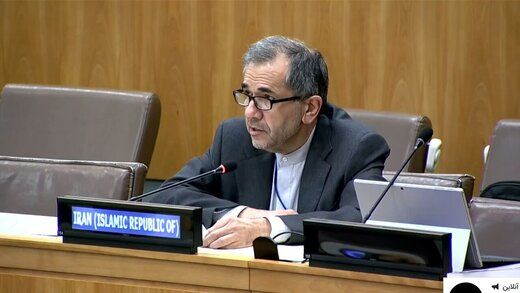Alwaght- Iran’s ambassador to the United Nations says the Islamic Republic supports urgent and peaceful resolution of the conflict in Ukraine in line with the international law, reported Press TV.
“The Islamic Republic of Iran is deeply concerned about the deteriorating humanitarian situation in and around Ukraine,” Majid Takht Ravanchi told a UN General Assembly meeting on Wednesday.
“Iran reiterates its principled position regarding the need for peaceful settlement of disputes in accordance with international law,” Press TV quoted him as saying.
The Islamic Republic, he said, reiterates its call for the urgent cessation of hostilities and de-escalation of tensions in the current conflict and encourages all parties to pursue their concerns through dialogue.
On February 24, Russia’s President Vladimir Putin announced a “special military operation” aimed at “demilitarization” of the Donetsk and Lugansk regions in eastern Ukraine. In 2014, the two regions declared themselves new republics, refusing to recognize Ukraine’s Western-backed government.
Announcing the operation, Putin said the mission was aimed at “defending people who for eight years are suffering persecution and genocide by the Kiev regime.”
Iran urges all parties to the conflict to cooperate in advancing humanitarian response to the situation, Takht Ravanchi said.
“My government supports the ongoing negotiations between the parties and reiterates its call for an urgent peaceful resolution of the conflict in accordance with international law,” he concluded.
His remarks came after the Assembly voted for a resolution criticizing Russia over the operation. The draft resolution was passed with 140 votes in favor, five against, and 38 abstentions, including by Iran.
Explaining the reason behind Iran’s abstention, Takht Ravanchi said, “We believe that the current text of the resolution before the General Assembly contains languages that go beyond the scope of the humanitarian situation on the ground and lacks realistic mechanisms for dealing with the humanitarian aspects of the conflict.”



























